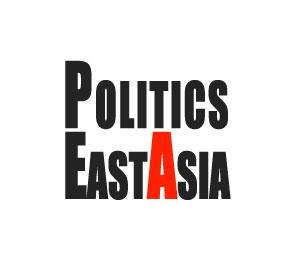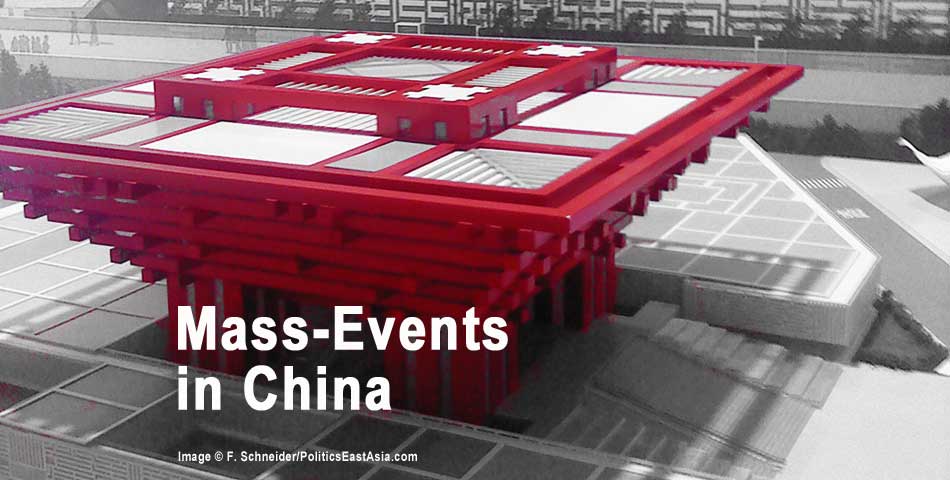Introduction to Mass-Events in China
The People’s Republic of China began the 21st century with a new-and-improved public relations approach. In the eyes of China’s propaganda experts, the PRC’s increasing economic, political, and cultural relevance in the world needed to be matched with a communication strategy that would alleviate suspicions about a potential “China Threat” while simultaneously showcasing the leadership’s policies to a domestic audience.
A corner stone in this communication strategy is the mass-mediated mega-event. Since the turn of the millennium, the PRC government has spent billions of RMB to host international events like the Olympic Games, the World Exposition, or the Asia Games. Each of these endeavours has been hailed by China’s state media as the grandest and most impressive event of its kind, and as China’s ultimate arrival on the world stage. Large amounts of financial and creative capital have similarly flown into the celebrations that marked the 10-year anniversary of Hong Kong’s return to China, the 30-year anniversary of China’s open-door policy, the 60-year anniversary of the PRC, and the 90-year anniversary of the Chinese Communist Party. On these occasions, the CCP has lavishly celebrated its successes and has situated itself firmly as the only guarantor for a prosperous Chinese future.
What is the political, economic, and cultural significance of these large-scale projects? What are we to make of the various attempts to show-case a modern and harmonious China? Commentators in the English-speaking world have at times voiced harsh criticism of events such as the Beijing Olympics or the Shanghai Expo, arguing that the Chinese authorities are manipulating international public opinion to obscure their political agenda at home and abroad. Others have pointed to the recent nationalist events such as major anniversaries and have alleged that these are evidence of China returning to its Maoist past. Meanwhile, intellectuals in China have criticized these events as a waste of tax-payer money that could have been spent on education, welfare, or environmental protection.
The project “Mass-Events in China” (MEC) takes a closer look at these large-scale projects, remaining skeptical of reductionist explanations of how these mega-events fit into political, economic, and cultural developments in China. Through expert interviews, empirical analyses of production backgrounds, and discourse analyses of media contents, MEC explores the PR strategies that inform such events, and examines what the implications but also the limits of these strategies might be. To what degree do different actors take advantage of China’s media events to shape political discourse in the PRC? Who is legitimized or de-legitimized in the process? With its in-depth engagement with theories of mass-communication, MEC offers a space to explore and critically discuss this vital dimension of political communication in China.


